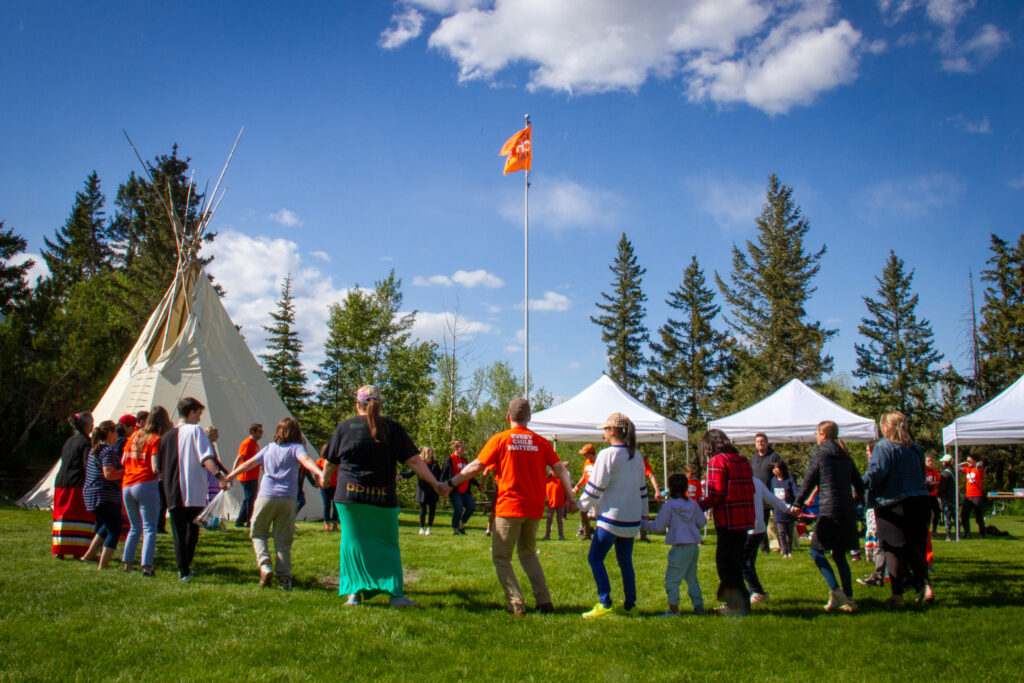By Dr. Brian Zelt, Senior Director of Programs
As we approach the first couple weeks of October, we are gently reminded of the transition of the seasons, particularly through the cooler mornings, earlier sunsets, and changing colors of the leaves. It is also a time of preparation and reflections on the blessings that were bestowed upon us in the spring and summer, as we get increasingly ready for the colder months that lie ahead.
The National Day for Truth and Reconciliation on Monday, September 30th, also known as “Orange Shirt Day”, symbolizes the importance of truth-telling and recognition of the losses of Indigenous peoples as the result of residential schools and de-culturation practices (Phyllis’ Story – Orange Shirt Society (orangeshirtday.org). Since 2023, the Canadian Federal government has formally recognized this day as a statutory holiday, and at the time of its inception, had asked that all provinces and territories follow similar acknowledgements. Wood’s Homes, in its commitment to this important day, recognizes it both as a holiday, and as an opportunity for greater learning and participation.
The care and support of Indigenous children and families across its programs and services at Wood’s Homes has been long-standing. Wood’s Homes recognizes the diverse population of Indigenous peoples that make Alberta their home, and the many staff members who choose Wood’s Homes for their employment and share their cultural selves with the children and families we serve. More recently, through the development of our Indigenous Allyship Toolkit (Allyship Toolkit 2023) now entering into its third year, Woods’s Homes has provided important opportunities for all programs and staff members to reflect upon ways in which they can better learn and incorporate the 10 Principles and 94 Calls to Action of the Truth and Reconciliation Commission of Canada (TRC) into daily practice.
Increasingly, the word Reconciliation has been replaced with the word ReconciliACTION to emphasize the importance of not only knowledge gathering and truth-seeking, but more formal commitments to “two-eyed seeing” which requires active attention and integration of both Indigenous ways of knowing and doing and Western knowledge into daily service delivery (ReconciliACTION Plans – NCTR).
Similarly, ReconciliACTION recognizes the significant burden of responsibility that many Indigenous staff members feel when working in the social services field, and the importance of non-Indigenous staff members supporting in the carrying of this emotionally heavy load.
Finally, ReconciliACTION identifies the critical importance of client advocacy, particularly in relation to ensuring that Indigenous children and families receive the necessary and timely cultural services and supports they require in their journey of healing and well-being, as formally described in the United Nations Declaration on the Rights of Indigenous People (UNDRIP; DRIPS_e n.pdf (un.org).
As part of the new Indigenous Initiatives team and Centre that is slowly taking shape, our commitments to ReconciliACTION are significant. From the promotion of staff member’s participation in Ceremony and Cultural Engagement, to helping facilitate client consultations and the sharing of resources and support strategies through our 5 new Community of Practices, we look forward to all our collective ACTIONing moving forward.




